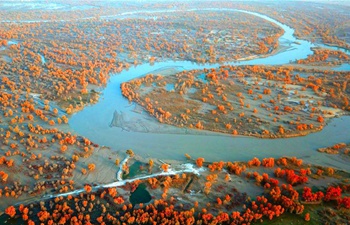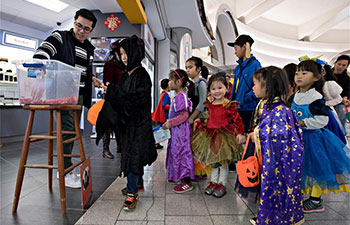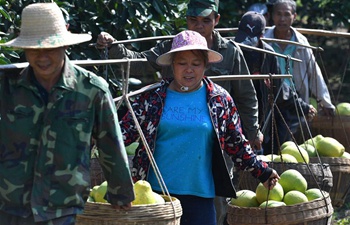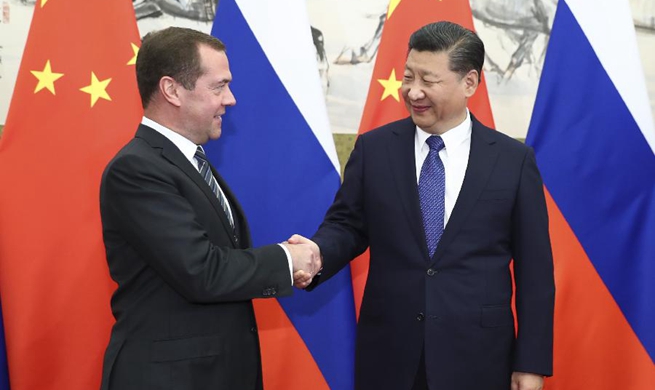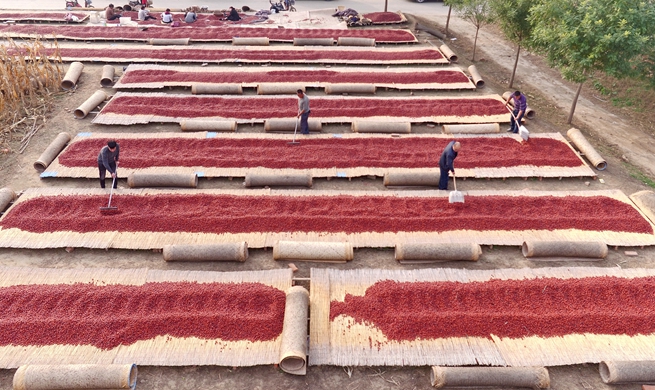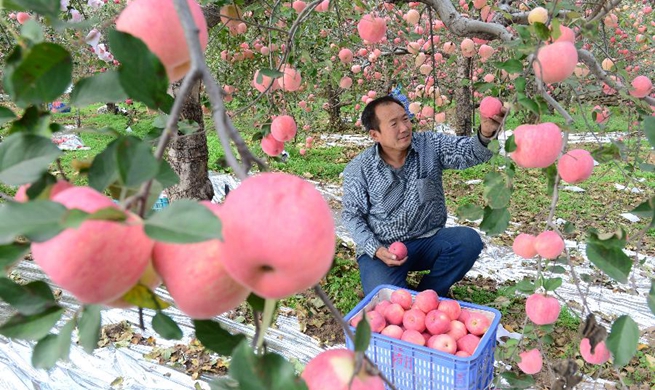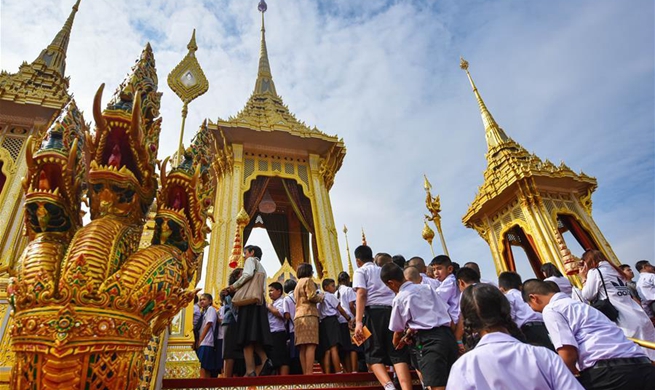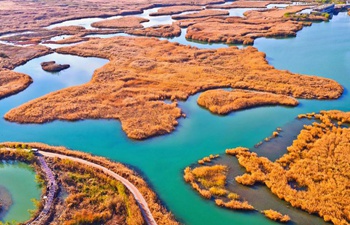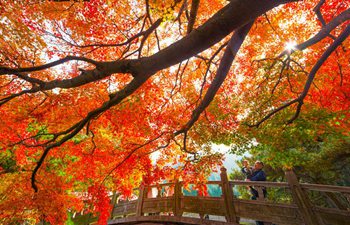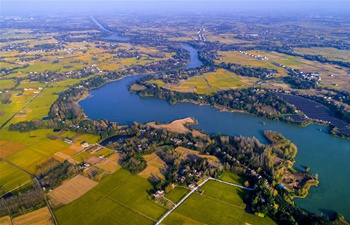by Salah Takieddine
BEIRUT, Nov. 1 (Xinhua) -- Farmer Abou Ajwad Sharif is busy like his fellow cannabis farmers during this period of the year in harvesting before the rainfall, as this plant must be dried under the sun before being manufactured during December and January.
Sharif, who has a strong structure, wears a straw hat to protect him from the sunshine, is always cautious and vigilant about every move he takes while leading a large group of 20 workers.
"Our concern is to collect the harvest before the rainfall. The rain kills our season, which will increase our losses in light of the recession we are witnessing," Sharif said.
But it consoles them that they can keep the reaped cannabis in a special dry store for many years for future sale.
Whoever visits the Bekaa Valley during this time of the year will be attracted by the hundreds of workers scattered in the vast plains planted with cannabis to the east and west of the city of Baalbek, the northern Bekaa and the Hermel heights on the eastern border with Syria.
The visitor can see on the sides of the main roads and at the entrances of the villages, dozens of fields in a scene that can be described as surreal, where these fields survived the pursuit of the Lebanese authorities, which traditionally destructed these cannabis fields before being harvested.
The destruction of the cannabis fields was carried out according to security authorities in the Bekaa, "based on a political decision imposed by local and international circumstances" and carried out by the security forces with the support of the Lebanese army.
The same sources added that destruction operations have been halted since 2012 because of the Syrian crisis and the situation on the eastern border with Syria, and also the preoccupation of the security forces in controlling these borders and facing the expansion of Islamic State and al-Nusra Front in northern Bekaa.
The suspension of fields' destruction led to an increase in cultivated areas at a time when the government and the international community are failing to provide the assistance promised years ago to the farmers to train and support them in a 300-million-U.S. dollar International Alternative Agriculture Project.
Samir, an activist in local development in the Bekaa region, said "Lebanon did not receive from this project more than 17 million dollars and most of the money was dedicated for researches about alternative crops such as thyme, anis, hazelnuts, chestnuts, pistachios, saffron and jojoba."
He added "the cost of these crops is higher compared with the low-cost and high-profit cultivation of cannabis for the vast majority of the population."
"The authorities meanwhile are confused with the calls to legalize the cultivation of cannabis for medical uses according to specific controls, which meets the support of a number of politicians. But these calls are not serious and are for electoral purposes," Samir said.
The activist estimated that the area planted with cannabis is between 30,000 and 40,000 acres, and the cost of planting each acre with cannabis is about 150 dollars while the crop is sold for 500 dollars, with a total annual revenue from this agriculture of about 800 million dollars annually, the main source of income for about 30,000 families in Bekaa.
But for Abou Amer, a cannabis farmer, "if the cannabis fields survived destruction this year, the production was still not fully saved because of the low prices and recession. No more than 20 percent to 30 percent of the crop could be sold, and this does not cover the cost."
Abou Tamer Kheireddine, another cannabis farmer, said "we are not outlaws and we grow cannabis simply because we failed last season and lost our money in planting potatoes and apples due to the recession and the small capacity of the local market and the absence of export."
He added "we never expected a recession in the cannabis trade but it is all due to the war in Syria, which led to the closure of our transit routes, not to mention the local prosecution and harassment, which closed also the routes to transport the cannabis to the Arab and European countries."
Abou Adham, with a nickname "king of Hashish," said this year's crop will enter his big warehouse to add to the huge quantities of last year's harvest.
"We are facing lots of troubles in selling our crops to the traditional markets in Egypt and European countries because of the bad situation of the routes," he said, adding that "we are facing losses accumulated year after year and the ounce price does not exceed 200 dollars, while it used to be sold four times this price."





